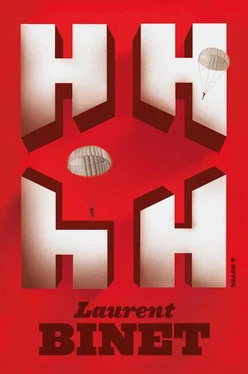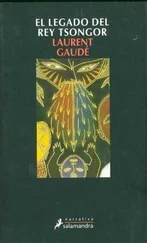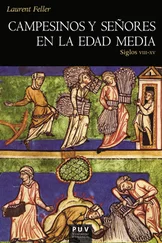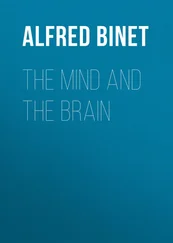And they end up finding it.
Well, “ideal” is perhaps not the right word.
The curve in Holešovice Street (ulice v Holešovičkách in Czech), in the Libeň district, has several advantages. First of all, it is almost a hairpin, so the Mercedes will be forced to slow right down. Next, it’s at the foot of a hill where they can post a lookout to warn them of the Mercedes’s arrival. Finally, it’s in the suburbs, midway between Panenské Břežany and Hradčany: neither in the city center nor in the countryside. So it offers the possibility of escape.
The Holešovice curve also has some disadvantages. It’s at a crossroads intersected by tram tracks. If a tram goes by at the same time as the Mercedes, there’s a danger the operation will be compromised—because the car might be hidden or civilians put at risk.
I have never assassinated anyone, but I suppose there is no such thing as ideal conditions: a moment comes when you have to decide. And anyway, there isn’t time to find anything better. So Holešovice it is: this curve that no longer exists, swallowed up by a highway ramp and by modernity, which couldn’t care less about my memories.
Because I do remember now. Each day, each hour, the memory grows clearer. On this bend of Holešovice Street, I feel I’ve been waiting forever.
I’m spending a few days on vacation in a beautiful house in Toulon, and I’m doing a bit of writing. This is no ordinary house: it’s the former residence of an Alsatian printer who, in the course of his job, rubbed shoulders with Paul Eluard and Elsa Triolet. [5] Paul Eluard (1895–1952) was a French surrealist poet. Elsa Triolet (1896–1970) was a French writer of Russian origin who fought in the French Resistance alongside her husband, Louis Aragon.
During the war he was in Lyon, where he printed false papers for Jews and stocked books by the underground publisher Éditions de Minuit. At the same time, the land surrounding his house in Toulon was occupied by German army camps, but apparently no one lived in the house, which remained in good condition. The furniture and the books were not touched, and they’re still here.
This man’s great-niece, knowing of my interest in the period, shows me a slim volume taken from the family library. It’s the original edition of The Silence of the Sea by Vercors, published on July 25, 1943, “the day the Roman tyrant fell,” as it says in the back of the book. It is signed by the author and dedicated to the great-uncle:
To Madame and Pierre Braun, with feelings that link all those engulfed in dark days by
The Silence of the Sea
Sincerely yours, Vercors
I am on vacation and I hold a bit of history in my hands. It is a very sweet and pleasant feeling.
There are alarming rumors about Heydrich. He will leave Prague. For good. Tomorrow, he must take the plane to Berlin. No one knows if he will return. This would obviously be a relief to the Czech people, but it would be a disaster for Operation Anthropoid. Alarming news for the parachutists, and also—although they know nothing about it—for the French. It is whispered among historians that perhaps Heydrich, having accomplished his mission in the Protectorate, now has his eye on what today we would call “a new challenge.” Having dealt so ruthlessly and brutally with Bohemia and Moravia, Heydrich would now sort out France.
He has to go to Berlin to discuss this with Hitler. France is in turmoil; Pétain and Laval are worms; if Heydrich could deal with the French Resistance the way he dealt with the Czech Resistance, that would be perfect.
This is only a theory, although it is backed up by Heydrich’s trip to Paris two weeks earlier.
That’s right—in May 1942, Heydrich spent a week in Paris. I have found the film of his visit in the archives of the National Audiovisual Institute. A clip from the day’s French news: fifty-nine seconds of filmed reportage. Speaking in that nasal voice so typical of the 1940s, the newsreader announces:
“Paris. Arrival of Mr. Heydrich, the SS general, chief of police, Reich representative in Prague, asked by the head of the SS and the German police, Mr. Himmler, to officially appoint Mr. Oberg, major general of the SS and of the police in the occupied territories. Mr. Heydrich is the head of the International Commission of the Criminal Police, and France has always been represented at this commission. The general took advantage of his stay in Paris to receive Mr. Bousquet, secretary-general of the police, and Mr. Hilaire, secretary-general of the administration. Mr. Heydrich also made contact with Mr. Darquier de Pellepoix, who, along with Mr. de Brinon, has just been named commissioner for Jewish affairs.”
I have always been intrigued by this meeting between Heydrich and Bousquet. I would really like to have the minutes of their conversation. After the war, Bousquet let it be known for a long time that he stood up to Heydrich. And it’s true that he categorically refused to give in on one point: that the powers of the French police should not be reduced; these powers consisting essentially of the right to arrest people. Jews in particular. Heydrich is happy to let the local police deal with this: it’s less work for the Germans, after all. As he tells Oberg, his experience in the Protectorate has shown him that an autonomous police and administration will produce better results. Provided, of course, that Bousquet leads his police “in the same spirit as the German police.” But Heydrich has no doubt that Bousquet is the right man for the job. At the end of his stay, he says: “The only person who has youth, intelligence, and authority is Bousquet. With men like him, we will be able to build the Europe of tomorrow—a Europe very different from that of today.”
When Heydrich tells René Bousquet about the next deportation of stateless (that is, non-French) Jews interned at Drancy, Bousquet spontaneously suggests that stateless Jews interned in the free zone should be deported as well. How very obliging of him.
René Bousquet was a lifelong friend of François Mitterand. But that is far from his worst offense.
Bousquet is not a cop like Barbie, or a militiaman like Touvier; nor is he a prefect like Papon [6] Klaus Barbie (1913–91) was a Gestapo member and war criminal known as the Butcher of Lyon. Paul Touvier (1915–96) was head of the Lyon militia. Maurice Papon (1910–2007) was a French politician later condemned for complicity in crimes against humanity during the Second World War.
in Bordeaux. He is a high-level politician destined for a brilliant career, but who chooses the path of collaboration and gets mixed up in the deportation of Jews. He is the one who ensures that the raid on Vél’ d’Hiv [7] The raid on the Vélodrome d’Hiver took place on July 16–17, 1942, and involved the arrests of 13,152 Jews, including 5,802 women and 4,051 children. They were sent to concentration camps. Only 25 people survived.
(code name: Spring Wind) is carried out by the French police rather than the Germans. He is thus responsible for what is probably the most infamous deed in the history of the French nation. That it was committed in the name of the French state obviously changes nothing. How many World Cups will we have to win in order to erase such a stain?
After the war, Bousquet survives the purge of Nazi collaborators that took place in France, but his participation in the Vichy government nevertheless deprives him of the political career that had appeared his destiny. He doesn’t live on the streets, though, and gets positions on various boards of directors, including that of the newspaper La Dépêche du Midi ; he is the main force behind its hard-line anti-Gaullist stance between 1959 and 1971. So, basically, he benefits from the usual tolerance of the ruling class for its most compromised members. He also enjoys the company—not without malice, I imagine—of Simone Weil, an Auschwitz survivor who knows nothing of Bousquet’s collaborationist activities.
Читать дальше












